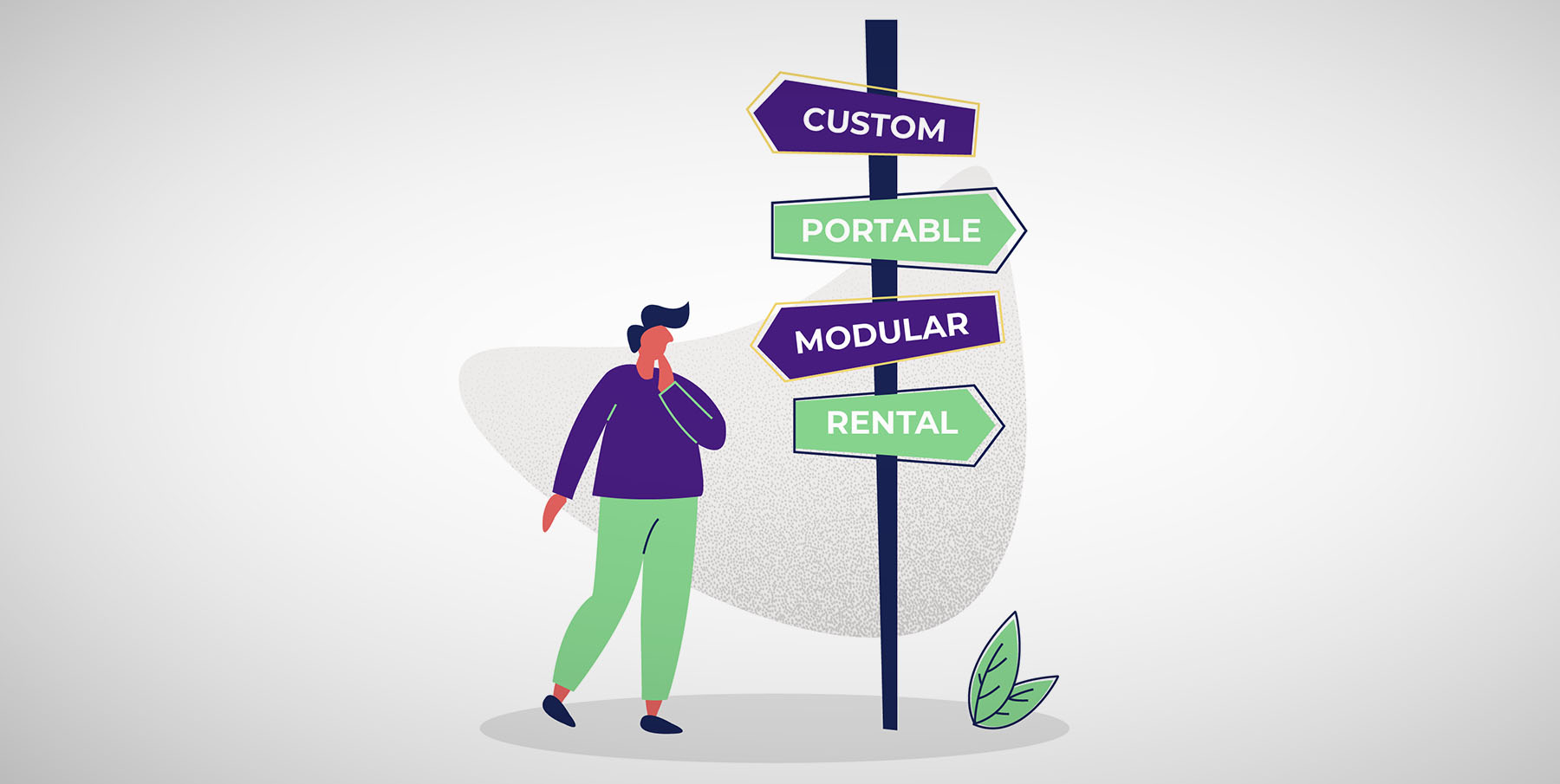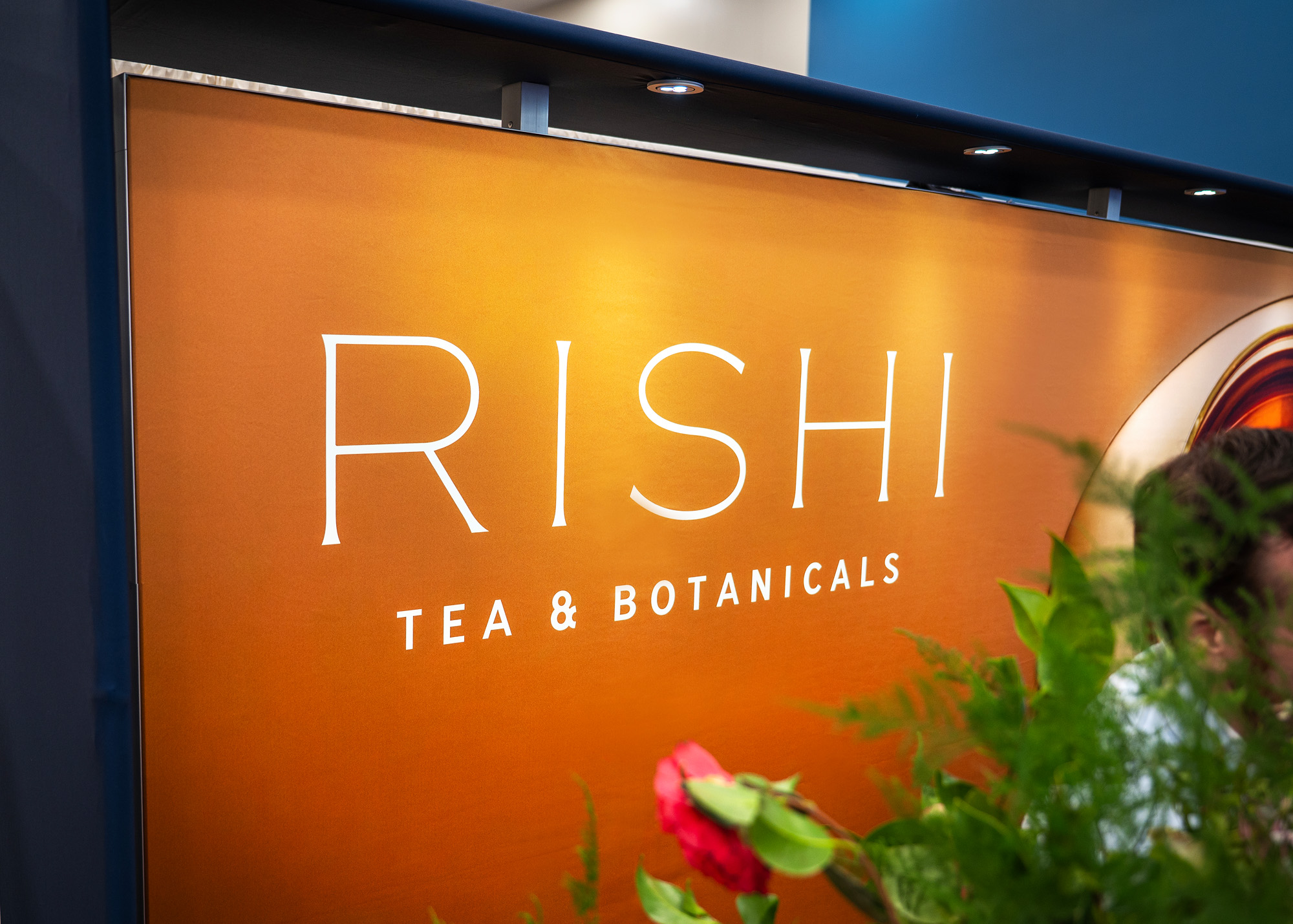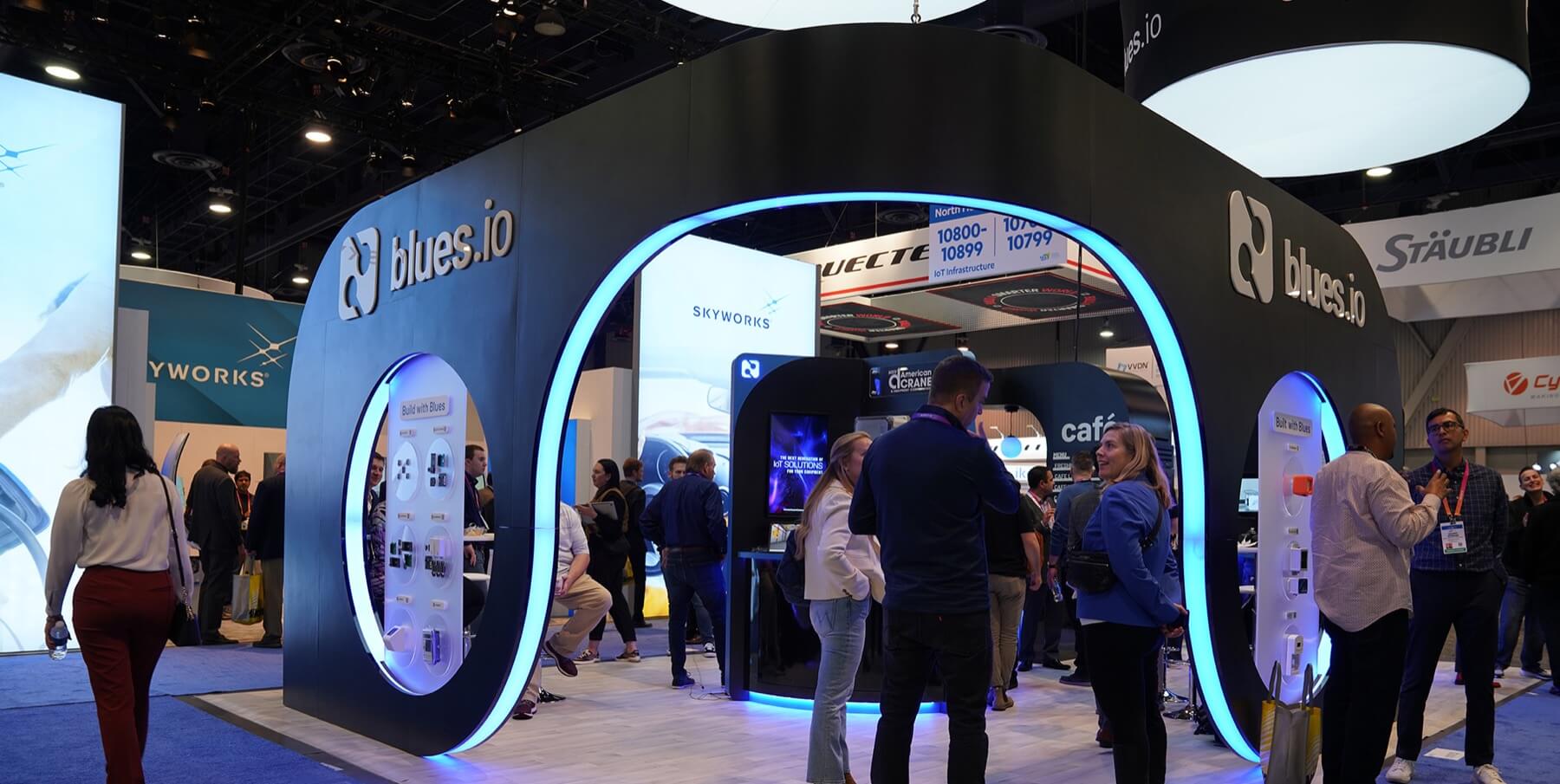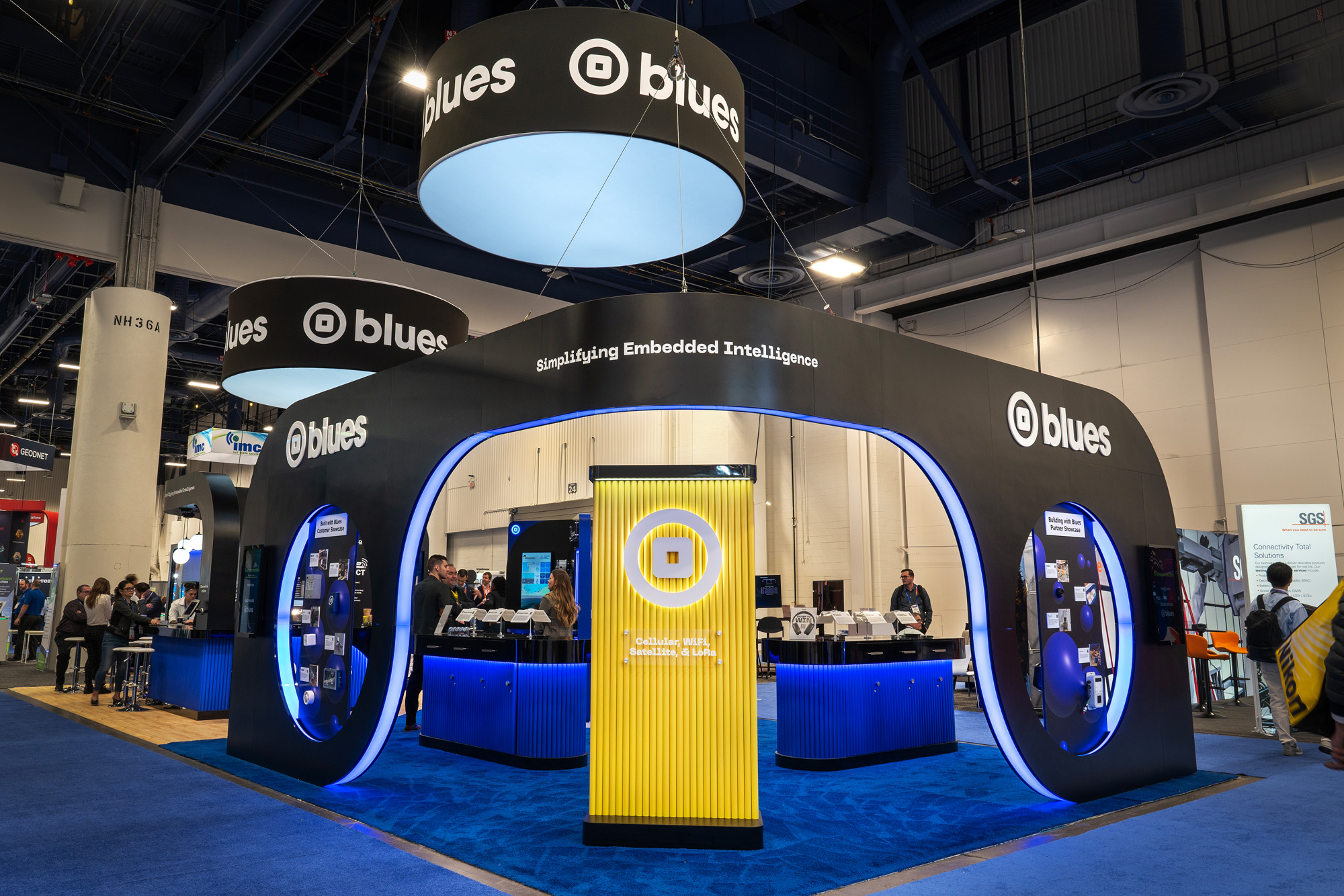Trade shows offer powerful opportunities to showcase products and connect with potential customers, but their costs can strain marketing budgets. Your choice between custom, modular, or rental booths will significantly impact both your expenses and potential ROI, making it one of the most crucial decisions in your trade show planning.
When selecting a booth type, you’ll typically choose between three options. Custom booths offer complete creative freedom but require significant investment, making them ideal for major industry shows and product launches. Modular booths provide flexibility with components that can be reconfigured for different events, perfect for companies attending multiple shows yearly. Rental booths offer a cost-effective solution for shorter-term needs, with no storage or maintenance requirements.
Let’s take a closer look at different cost considerations for each of these exhibit options, and how to determine the best booth mix for your trade show needs.
Cost considerations for custom booths.
Custom booths are best suited for companies that want to make a lasting impression at flagship events or industry-leading trade shows. While they require higher investment, the return can be significant in terms of brand visibility and attendee engagement. Here are some key cost factors to consider when choosing a custom booth:
Design and Fabrication Costs: Custom booths require the most significant investment in design and fabrication, as they’re bespoke and helping bring a specific vision to life. The process is extensive, involving consultations with designers, multiple iterations, and the use of premium materials to create a unique and impactful exhibit. These costs are often considered a strategic investment for high-profile events where the goal is to make a major impression.
Shipping and Drayage: Custom booths are often larger and heavier, resulting in higher shipping and drayage fees. Drayage—the cost of transporting booth materials from the loading dock to the exhibit space—can add up quickly, especially for larger exhibits that require specialized handling. Considering these factors – and whether a vendor may have strategic options such as local offices close to show locations – influence total cost.
Storage, Maintenance, and Labor: After the trade show, custom booths need to be stored, which incurs additional costs. They also require maintenance to ensure that they remain in good condition for future use. Custom booths may also require specialized labor for setup and breakdown, which adds to total costs.
Cost considerations for modular booths.
Modular booths offer a cost-effective alternative to custom booths while still providing a high level of flexibility. They’re an excellent choice for companies that participate in multiple trade shows throughout the year and need a flexible, reusable solution that balances cost and impact. Here are the key cost factors to consider:
Initial Investment: Modular booths require an initial investment, but the cost is generally lower compared to custom booths. The modular components can be reused and reconfigured, making this option budget-friendly over time.
Shipping and Storage: Modular booths are designed to be lightweight and compact, which helps reduce shipping and drayage costs. Additionally, the modular components are easier to store, and storage costs are typically lower compared to custom booths. As they’re typically designed for easy assembly, this can also reduce associated labor costs.
Flexibility and Reusability: One of the biggest advantages of modular booths is their reusability. The components can be adapted to different booth sizes and configurations, allowing you to use the same booth for multiple events. This versatility provides significant cost savings over time.
Cost considerations for rental booths.
Rental booths are ideal for companies with budget constraints, those attending only a small shows, or those looking to test the effectiveness of trade show participation before making a larger investment into a custom build . Cost factors to consider include:
Lower Upfront Costs: Renting a booth requires a much lower upfront investment compared to purchasing a custom or modular booth. You pay only for the use of the booth during the event, making this a cost-effective solution for short-term needs. Often, this can be a great option if you’re looking for a solution for a single show or to test an option three times or less.
No Storage or Maintenance Costs: One of the major advantages of renting a booth is that there are no storage or maintenance costs. After the event, the rental company handles teardown, shipping, and storage, which can save your company both time and money. Many rental providers also offer additional services such as setup, breakdown, and logistics support.
Customization Options: While rental booths offer less customization compared to custom or modular booths, they still provide opportunities for personalization through graphics, banners, and signage. The cost of customizing a rental booth is generally lower, as the base structure is already provided.
Read more about the benefits and opportunities associated with each of these exhibit types in our eBook: Choosing the right booth mix: balancing custom, portable, modular and rental solutions.








